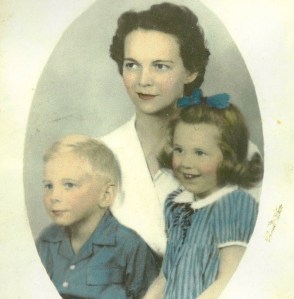
If you have children of a certain age, or if you just happen to love musical theater, then you know the power of the Hamilton soundtrack on repeat. My kids’ recent favorite song is “Non-Stop,” but my twelve year old can belt “Helpless” with an understudy’s zeal; my eight year old can roll his r’s just like Jonathan Groff’s King George III in “I’ll Be Back,”; and my ten year old has been known to pass a melancholic, quarantined afternoon with “It’s Quiet Uptown” on repeat.
My personal favorite, though, is a song that the kids usually skip. “The World Was Wide Enough” sets the scene for the duel between Aaron Burr and Alexander Hamilton. In a play that harnesses the drama and intrigue of American history to such a degree that even an eight year old can sit watching with riveted attention, this is arguably its most dramatic and powerful moment. As the song builds and Burr fires his shot, the scene freezes around them. Here, Alexander Hamilton gives us his last words:
“Legacy—what is a legacy?” he asks. “It’s planting seeds in a garden you never get to see. I wrote some notes at the beginning of a song someone will sing for me. America, you great unfinished symphony …”
If I forced my kids to listen to this bit of drama over and over, they’d whine: “Mom, this is so sad!” and we’d flip back through to “Satisfied,” or “Wait for It,” depending on the mood. But for me, “The World Was Wide Enough” captures Lin Manuel Miranda’s inspiration at its height, and it carries a message especially prescient for today’s America.
We often relegate the word “legacy” to people who are capital-I “important.” Famous nation-builders, writers, artists, physicians and pioneers in all manner of fields leave legacies. But what about our friends and neighbors? What about us? What seeds are we planting in the gardens we’ll never see?
Now less than two weeks from the outcome of an election that could just as easily be likened to a reckoning, I think about this. Last week, as I stood in line for an hour and a half at my local early voting precinct, I felt so proud to be a part of a country whose founders envisioned raising our minds and our voices rather than raising our guns.
Alongside me was an elderly man shuffling through the infinite line dragging his bad leg by a walker. A woman and her husband dressed beautifully for this unique and privileged occasion. She was wearing a feathered hat. Two haggard, unshaven guys behind me discussed the books we passed as we wound through the stacks of the public library before reaching the voting booth. A woman well ahead of me in the maze broke rank for just a second to compliment a faraway voter on her shoes.
America, the beautiful. America, the complicated, the imperfect, the human. The unfinished. How I love thee.
You, yourself, might be standing in line to vote as you read this. Or you might be planning to watch the debate tonight, to see if it will help you make your final choice. You may be wrestling with messages from your upbringing–past wounds and loyalties that get in the way of clarity.
Or, you might feel a bit defeated and apathetic: does any of this even matter? I think we all know what Alexander Hamilton would say to you: definitively, it does.
On our way home from school each weekday, we pass a beautiful white church on a prominent street. I first saw the protesters gather there in May, but they looked a little different from the people peacefully protesting and rioting in the streets of cities’ downtowns. This brave cluster was made up of elderly white people. Some of them leaned on canes; all of them wore masks. They held Black Lives Matters signs, standing six feet apart in their geriatric shoes, and they rang cowbells. (Who doesn’t love a little cowbell?) At first, there were no more than a handful of them — five or six at most. Over the summer and fall they’ve grown to forty or more.
This week we saw them again, and the kids and I had a Hamilton moment as we slowly drove by. “Who Tells Your Story” was on full blast, and we had the windows down. The day held that warm, soft autumn light that makes October in the South so wonderful. My eight year old leaned as far out the window as he could safely do. “The Oldies are protesting, Mom!” he said with delight. In his face was this incredible mixture of hope and joy. I’ll never forget it. They’re planting seeds in a garden they may never see. For my kids, it’s a lesson that you don’t have to stop growing even as you grow old.
Beneath the political noise and the fear-mongering, the paid political advertisements, the endless loop of your newsfeed, and the drone of cable news, Hamilton inspires this one helpful, clarifying question:
What might bloom in the garden where you intend to plant your seeds?
Vote wisely, friends. History has its eyes on us.







